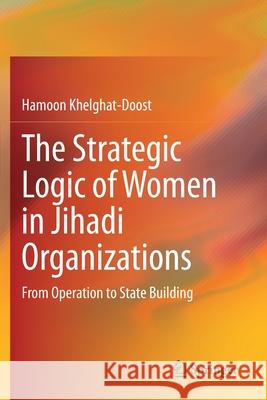The Strategic Logic of Women in Jihadi Organizations: From Operation to State Building » książka
topmenu
The Strategic Logic of Women in Jihadi Organizations: From Operation to State Building
ISBN-13: 9783030593902 / Angielski / Miękka / 2022 / 210 str.
The Strategic Logic of Women in Jihadi Organizations: From Operation to State Building
ISBN-13: 9783030593902 / Angielski / Miękka / 2022 / 210 str.
cena 484,18
(netto: 461,12 VAT: 5%)
Najniższa cena z 30 dni: 462,63
(netto: 461,12 VAT: 5%)
Najniższa cena z 30 dni: 462,63
Termin realizacji zamówienia:
ok. 22 dni roboczych.
ok. 22 dni roboczych.
Darmowa dostawa!
Kategorie BISAC:
Wydawca:
Springer
Język:
Angielski
ISBN-13:
9783030593902
Rok wydania:
2022
Ilość stron:
210
Waga:
0.30 kg
Wymiary:
23.39 x 15.6 x 1.12
Oprawa:
Miękka
Wolumenów:
01
Dodatkowe informacje:
Wydanie ilustrowane











